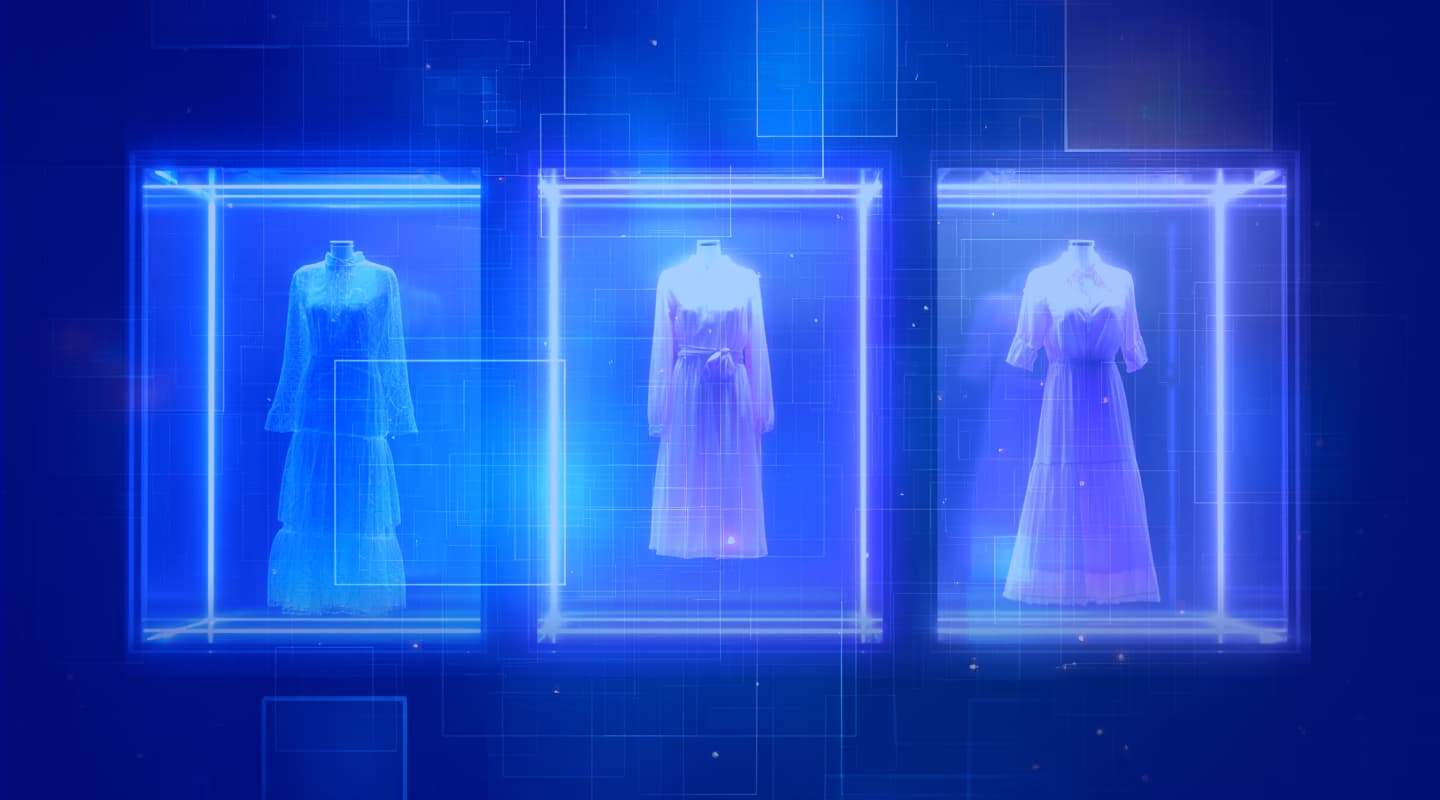In this blog series, we’re sitting down with top Algolia executive voices to discuss innovations shaping the future of retail, consumer trends to watch, and practical advice for businesses navigating the age of AI search.
To kick off the series, we spoke with Nate Barad, Algolia’s Vice President of Product Marketing, ahead of the launch of Intelligent Fashion solution. He also shared exclusive insights from a recent survey of 1,000 U.S. consumers and offered a glimpse into how AI is redefining online fashion retail.
Q: Why is Algolia releasing its fashion solution right now and what makes it different from others on the market?
A: We are at a fascinating point in fashion; the shopper expectations of their brands are exceedingly high, and the pressures on fashion retailers can feel unbearable. Shoppers expect immediacy, personalization, and sophistication from their fashion shopping experiences. And with fashion being such a brand-conscious business, they are eager to meet and set the pace on consumer’s online expectations in order to keep their brand value as high as possible in shopper’s minds. For fashion, and particularly high fashion and luxury, the in-store and online experience must reinforce brand identity and meet high service standards.
Algolia powers AI search for 75% of the world’s top fashion houses, giving us unmatched experience insight into how these brands think, speak, and serve their customers. We help those Fashion Houses humanize the AI-powered shopping experience by allowing their sophisticated shoppers to window-shop with more of their senses. Beyond solutions that look to get the best average order value, our AI helps people shop more intuitively while maintaining our clients brand and identity. We believe we have unlocked a unique advantage for fashion's digital teams by applying our expertise.
Q: 63% of consumers believe AI will improve the online shopping experience—up from 59% last year. What specific AI advancements are having the biggest real-world impact on the consumer right now?
A: If a shopper asks a virtual assistant a question using their voice, and they expect AI to provide an answer. These advancements set a shopper's expectation of ease and guidance from AI. However a fashion brand has a unique advantage over a general assistant. For fashion, shopping is often emotional and sensory. For example, a shopper can spot their favorite celebrity on a red carpet or see them on a talk show and immediately want that exact look. In a store setting, you can’t browse and compare all of the blue single-strap leather bags in one display. A department store or a fashion house doesn’t organize by color. But in an online shopping experience powered by AI, you can filter, shop and compare as many options as they have.
Another major advancement is AI-powered outfit completion. With high functioning AI, the online retailer will suggest the perfect shoe and jeans to go with the top a shopper already has in their shopping cart based on their personal style and browsing history. In the past, it may have just offered similar shirts as recommendations instead of truly understanding a shopper’s preferences and intent.
Q: An Algolia consumer survey uncovered that 65% of consumers would be interested in using an AI personal shopper from their favorite retailer. This number goes up to 69% for men, 77% of millennials and 69% of Gen Z. What are some challenges retailers might face in scaling AI personal shopper services?
A: The biggest challenge—and goal—of a fashion retailer is maintaining and enhancing their brand. Every single brand has unique vernacular and verbiage, whether its categories like puffer jackets versus insulated jackets or specifically branded color hues (such as sky blue versus baby blue versus heavenly blue). AI systems must be trained on the intricacies of a brand’s language and preferences, including their customer service goals. Where one retailer may want their AI assistants to answer every question they can to save associates time, another retailer may want to gather baseline information and then transfer to a human stylist for a first-class, personalized ‘white glove’ service. Each unique aspect of a brand must be addressed and every AI interaction should reflect a brand’s DNA.
Q: 37% of consumers think visual search that allows you to upload an image and instantly find similar styles, colors and designs would make their shopping experience better and easier. We all shop with our eyes—what do you believe is the next stage in visual search for fashion brands?
A: The next stage of visual search will be VR [virtual reality] and AR [augmented reality] available on any phone or device. Our customer Zenni already lets shoppers virtually try on glasses. That’s the future: highly accurate 3D product visualization that lets customers experience how something looks and feels before buying in the comfort of their own home.
Q: How can luxury fashion brands still provide personalized experiences to customers who may be a “one-time” shopper, as opposed to brands that have frequent repeat (and therefore more data on) customers? Does Algolia’s In-Session Personalization solution work for those one-time customers as well?
A: For one time shoppers, it’s important that brands understand intent. Your goal is not to turn them into a long-time return customer through loyalty programs or memberships after just one interaction. Instead, your goal is to delight them and give them exactly what they want through a precise and on-brand shopping experience so they come back to you.
Yes, Algolia’s In-Session Personalization works for those one-time customers as well. The technology takes everything that it can infer immediately from a customer, like location, their action on the site, or device they are using, and immediately begins personalizing and dynamically updating based on every interaction, swipe, filter and sort to create a personalized experience from the jump.
Q: Beyond High fashion, 71% of consumers said they would use an AI agent to find the best price across retailers. How should brands respond to this in terms of pricing and/or brand loyalty strategy?
A: There are different times when price matters. For example, if storing your clothing or products in a warehouse costs more than selling the product at a discount, price has a different consideration. This is just one of many influences that a fashion retailer considers in merchandising. There are different signals that drive revenue, and it's important to understand and prioritize values other than price. This is really where loyalty programs shine. Flexible returns, exclusive benefits, early access to sales—these are loyalty levers that create value beyond cost.
Q: Why do you think 95% of product launches miss their goals? What can brands do differently to make the most out of product launches? How does search play a part in the strategy?
A: For many years, and at its core, search engines have been a popularity-based game based on the number of searches over time a product or item has received. Simply, new products don’t have the time and data to become popular yet. Thus far, the only way to overcome the issue beyond heavy investment in content, marketing and campaigning pre-launch is manually and expensively, through things like pinning on homepages, tweeting about it, sponsoring Google Ads, and more. But even beyond those, we still have challenges in casual shopping to highlight new launches for in-the-moment shoppers. With Algolia, the game has changed. Our multi-signal and AI ranking solutions take into account factors like new launches or collections to boost visibility of the right products for both the customer and the retailer.
Q: Anything else you’d like to add?
A: AI isn’t just transforming online shopping, it’s transforming in-store experiences, too. There are incredible use cases for a side-by-side experience using AI shopping assistants in store. We have retail customers that equip their in-store associates with apps that can pull up AI recommendations to support an associate's own customer advice. It’s helping the store associate become better at their job and providing a more robust in-store experience through personalized recommendations and the speed at which AI recommends it.
If you want to learn more about Algolia’s Intelligent Fashion solution, check out the full announcement here.
Starten Sie kostenlos
Die weltweit fortschrittlichste KI-SucheAI Browse
Von KI erstellte Kategorie- und SammlungsseitenAI Recommendations
Vorschläge überall auf der User JourneyMerchandising Studio
Datengestützte Kundenerlebnisse, ohne CodeMerchandising Studio
Datengestützte Kundenerlebnisse, ohne CodeAnalytics
Alle Ihre Erkenntnisse in einem DashboardUI Components
Pre-built components for custom journeys





